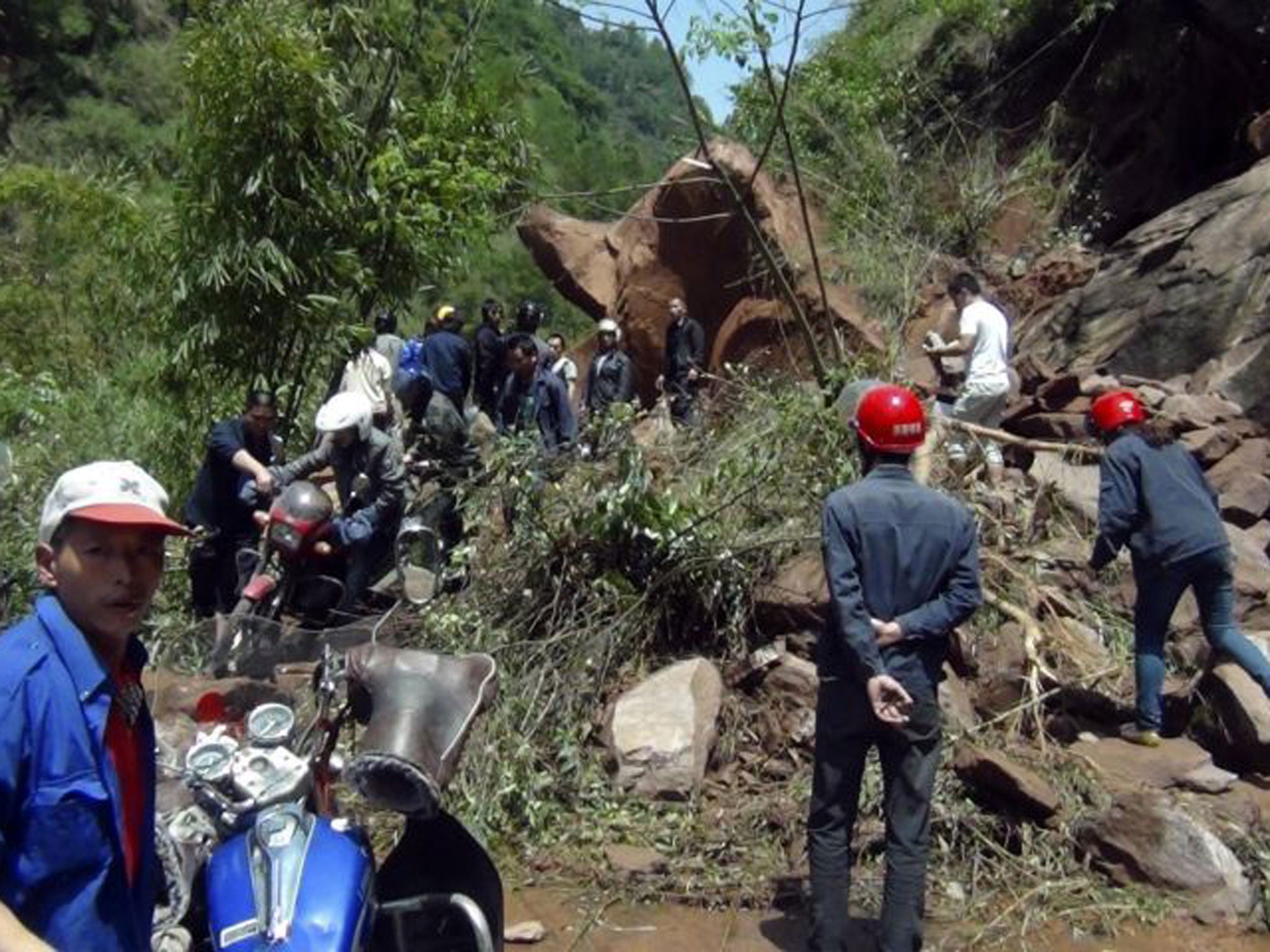At least 156 dead after earthquake and landslides in south-west China
More than 5,500 have been killed, according to authorities

Your support helps us to tell the story
From reproductive rights to climate change to Big Tech, The Independent is on the ground when the story is developing. Whether it's investigating the financials of Elon Musk's pro-Trump PAC or producing our latest documentary, 'The A Word', which shines a light on the American women fighting for reproductive rights, we know how important it is to parse out the facts from the messaging.
At such a critical moment in US history, we need reporters on the ground. Your donation allows us to keep sending journalists to speak to both sides of the story.
The Independent is trusted by Americans across the entire political spectrum. And unlike many other quality news outlets, we choose not to lock Americans out of our reporting and analysis with paywalls. We believe quality journalism should be available to everyone, paid for by those who can afford it.
Your support makes all the difference.At least 156 people have died and more than 5,500 been injured in a powerful earthquake in China's south-western Sichuan province today.
The quake - measured by China's seismological bureau at magnitude 7.0 on the Richter scale and by the US Geological Survey at 6.6 - struck the steep hills of Lushan county shortly after 8am.
Though less destructive as the one which hit the mountainous region in 2008, it toppled buildings, triggered landslides and disrupted phone and power connections.
Authorities said nearly all the buildings in the village of Longmen had been destroyed.
Rescuers turned the square outside the Lushan County Hospital into a triage centre, where medical personnel bandaged bleeding victims, according to footage on China Central Television. Rescuers dynamited boulders that had fallen across roads to reach Longmen and other damaged areas lying farther up the mountain valleys, state media reported.
People in their underwear and wrapped in blankets ran into the streets of Ya'an and even the provincial capital of Chengdu, 70 miles east of Lushan, according to photos, video and accounts posted online.
Lushan, where the quake struck, lies where the fertile Sichuan plain meets foothills that eventually rise to the Tibetan plateau and sits atop the Longmenshan fault. It was along that fault line that the devastating magnitude-7.9 quake struck on May 12, 2008, leaving more than 90,000 people dead or missing and presumed dead in one of the worst natural disasters to strike China in recent decades.
Xinhua said the well-known Bifengxia panda preserve, which is near Lushan, was not affected by the quake. Dozens of pandas were moved to Bifengxia from another preserve, Wolong, after its habitat was wrecked by the 2008 quake.
China Earth Administration said there had been at least 35 aftershocks, including at least two of magnitude 5.0 or higher.
"It's too dangerous," said a person with the Weibo account Chengduxinglin and with a Lushan geotag. "Even the aftershocks are scary."
While rescuers and state media rushed to the disaster scene, China's active social media users filled the information gap. They posted photos of people rushing to streets for safety and of buildings flattened by the quake. They shared information on the availability of phone services, apparently through data services.
Join our commenting forum
Join thought-provoking conversations, follow other Independent readers and see their replies
Comments